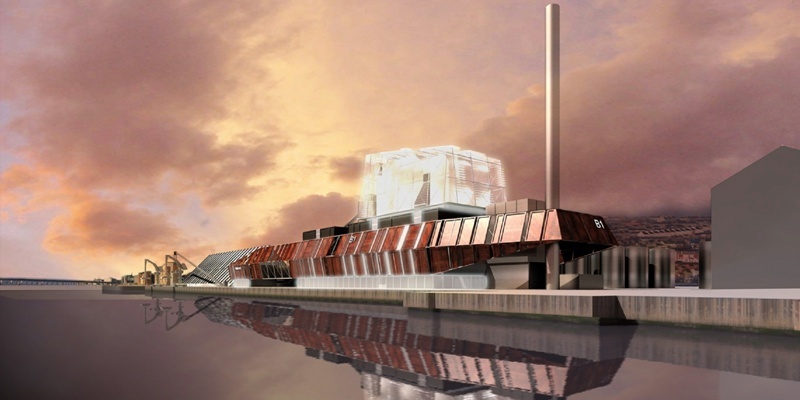The proposed Dundee harbour biomass plant will not be affected by the Scottish Government’s designation of the port as an enterprise area for low carbon and renewables development.
Forth Energy says the installation it plans for King George V Wharf will be one of the lowest carbon forms of energy generation.
Dundee’s city development committee will next week consider adopting a protocol for dealing with planning applications for the designated enterprise area at the port.
The initiative is intended to help the designated areas attract ”the most dynamic industries with the greatest potential to create new employment opportunities, stimulate private investment and boost economic growth,” according to city development director Mike Galloway in a report to members.
The Scottish Government expects local authorities to sign up to a protocol agreement to indicate to potential applicants how they can expect planning applications within these areas to be dealt with and the level of before-and-after service that will be provided.
It is also proposed that Enhanced Capital Allowances will apply whereby businesses can claim for up to 100% of the cost of certain qualifying investment in plant and machinery against the business profits in the year of purchase.
Where a single or small number of businesses are likely to have significant capital expenditure costs, Enhanced Capital Allowances may be worth more to firms than business rates discounts.
The Port of Dundee would have low carbon enterprise status, as would the site at Claverhouse East.
A spokesman for the council said: ”By designating these two enterprise areas for low carbon/ renewables, the city council is seeking to provide the best available incentives to businesses in that field who want to set up in Dundee.”
Forth Energy’s planning application for a biomass plant at the harbour has been suspended pending the outcome of air quality tests. There is a high level of air pollution in the area caused mainly by traffic passing the harbour site.
The biomass proposal ran into strong local opposition, however, because of concerns that the wood-chip burning plant with its 100m mast would add to the pollution and be unsightly.
Forth Energy stressed, however, that the Dundee biomass plant would not be a carbon polluter and would not fall foul of the enterprise area rules.
A spokesman for Forth Energy said: ”We are committed to bringing low carbon heat and electricity to Dundee. Our proposed wood-fuelled combined heat and power plant at the Port of Dundee will be one of the lowest carbon forms of electricity generation.
”Its carbon intensity will be around 44% lower than gas plants and 80% lower than coal-fired plants. Our plant will also provide renewable low carbon heat to meet the needs of existing businesses in Dundee and also to support the offshore renewables industry which is a future growth area for the port.”
Calum Wilson, managing director of Forth Energy, has said the plant would help Dundee become a renewable energy hub, while also contributing massively to the local economy.
Forth Energy says the proposed plant represents a capital investment of £325 million and would have a gross value to the local economy of £26.4 million a year.
The plant would employ an average of 300 people, peaking at 500 over 36 months, and would support around 70 operational jobs thereafter.
